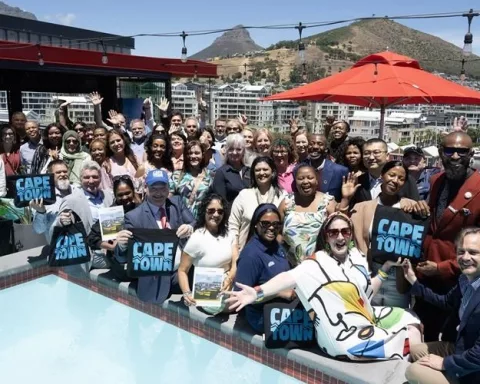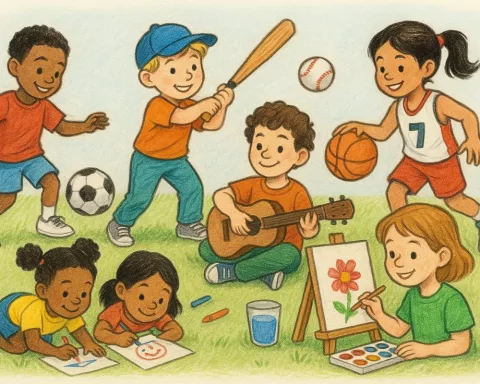Cape Town is currently facing a heartbreaking wave of violence, with gang-related shootings taking 17 lives in just a few weeks. Fear has gripped the neighborhoods, leading many residents to call for military help to restore safety. A tragic incident at a funeral turned into chaos when a gunman opened fire, showcasing the city’s urgent need for action. While police and community leaders are trying to address the crisis, many feel that more drastic measures are necessary to protect their families and heal their communities. Amidst this turmoil, local artists and organizations are working hard to bring hope and unity back to the streets.
What is the current state of violence in Cape Town?
Cape Town is facing a surge in violence, particularly gang-related incidents that have recently claimed 17 lives. Communities are grappling with fear and uncertainty, prompting calls for military intervention as residents seek effective solutions to restore safety and address socio-economic issues fueling this crisis.
Cape Town, a vibrant metropolis celebrated for its breathtaking landscapes and rich cultural tapestry, is currently confronting a serious crisis marked by rising violence. Historically, the city has been a fusion of diverse cultures and stories, akin to artistic movements that blend various elements into a cohesive narrative. However, a grim tale now unfolds, overshadowed by gang violence that threatens the fabric of its communities.
A City Under Threat
In recent weeks, the situation has escalated dramatically, with gang-related shootings claiming 17 lives across the Cape Peninsula. Areas such as Uitsig, Manenberg, Hout Bay, and Muizenberg have witnessed these deadly confrontations, painting a picture of a city under siege. The indiscriminate nature of these violent incidents affects individuals from every walk of life, further fracturing communities and instilling a pervasive fear among residents.
A particularly harrowing episode occurred in Lotus River on February 7th, when a gunman opened fire during the funeral of an alleged gang leader. This brutal attack injured eight people, including a 12-year-old child, turning a moment meant for mourning into a scene of chaos. The brazenness of such acts highlights the audacity of those sustaining this cycle of violence. Despite the severity of these incidents, law enforcement has made no arrests, leaving communities to grapple with unresolved fears and uncertainties.
Calls for Military Intervention
As the violence intensifies, the clamoring for intervention grows louder. Both residents and community leaders recognize the limitations of the South African Police Service (SAPS) in effectively combating this surge in violence. Consequently, there is a growing demand for the South African National Defence Force (SANDF) to be deployed. This plea draws from historical cases where military intervention helped restore order during civil unrest. However, SANDF spokesperson Siphiwe Dlamini has clarified that military action requires a formal request from the police, emphasizing that the military’s role remains supportive rather than primary.
Police Minister Senzo Mchunu has responded by emphasizing collaborative efforts involving his department, the Western Cape Government, and the City of Cape Town. Initiatives like the deployment of the Anti-Gang Unit and increased police visibility are designed to deter criminal activity. Additionally, legislative discussions aim to criminalize gang membership, reflecting a proactive strategy to dismantle the power structures enabling these violent networks.
Community Frustration and the Search for Solutions
Despite these measures, many residents feel that current efforts fall short. Abie Isaacs, chairperson of the Cape Flats Safety Forum, voices the community’s frustration: “The bloodshed is out of control. We need the army if we are serious about stopping these killings.” This sentiment resonates in Manenberg, where the tragic death of five-year-old Ameer Abrahams during a gang-related shooting has left the community mourning. His mother, Mishka Abrahams, expresses a heart-wrenching plea for action, lamenting that without military intervention, the crisis continues to fester.
Kashiefa Mohammed, spokesperson for the Hanover Park community policing forum, questions the police minister’s assurances that SAPS has the situation under control. Her skepticism resonates with Sadie Khan of Fight Against Crime SA (Facsa), who highlights the persistence of violence despite the presence of specialized crime-fighting units. Their collective demand for immediate intervention underscores the urgency to protect lives and restore peace within the beleaguered neighborhoods of Cape Town.
Reflections on Historical Context and Community Efforts
Examining Cape Town’s current predicament evokes comparisons to its historical struggles. The lingering legacy of apartheid, with its systemic inequalities and social fragmentation, casts a long shadow over the city. Socio-economic disparities provide fertile ground for gang recruitment, as marginalized youth seek belonging and economic opportunity within these criminal enterprises.
Amidst the narrative of violence and despair, glimmers of resilience and hope remain. Community organizations and activists tirelessly labor to reclaim their neighborhoods, focusing on initiatives that emphasize youth empowerment, education, and economic development. These grassroots movements strive to build a future where the allure of gang life no longer captivates Cape Town’s youth.
Art, as a reflective mirror of society, plays a pivotal role in this struggle. Local artists and cultural practitioners use their craft to address the violence, utilizing music, theater, and visual arts to promote messages of peace and unity. Their works, reminiscent of the transformative power of art, aim to inspire change and foster a sense of community identity that transcends the divisions wrought by violence.
A Path Forward
The crisis in Cape Town demands a multifaceted approach addressing both immediate security concerns and underlying socio-economic issues. While calls for military intervention highlight the urgency of the crisis, long-term solutions require sustained efforts in community building, economic development, and social cohesion. Cape Town’s story, akin to the broader South African narrative, is one of resilience in the face of adversity. It is within this spirit that hope for a brighter, more peaceful future resides, where diverse communities can thrive free from the shadows of violence.
“`markdown
What is the current state of violence in Cape Town?
Cape Town is grappling with a surge in violence, particularly gang-related incidents that have resulted in the loss of 17 lives in recent weeks. The situation has instilled fear in communities, prompting residents to call for military intervention to restore safety and address the socio-economic factors contributing to this crisis.
Which areas in Cape Town are most affected by gang violence?
Areas such as Uitsig, Manenberg, Hout Bay, and Muizenberg have experienced some of the most severe gang-related violence. Recent incidents, including a tragic shooting during a funeral in Lotus River, highlight the indiscriminate nature of these violent acts, affecting individuals from all walks of life and further fracturing community bonds.
Why are residents calling for military intervention?
As violence intensifies, residents and community leaders are increasingly demanding military intervention, citing the limitations of the South African Police Service (SAPS) in effectively managing the crisis. Many believe that the South African National Defence Force (SANDF) could play a crucial role in restoring order, drawing from historical precedents where military action has been effective during civil unrest.
What measures are being taken by law enforcement to combat the violence?
In response to the escalating violence, the police have implemented several initiatives, including the deployment of the Anti-Gang Unit and increased police visibility in affected neighborhoods. Additionally, there are ongoing discussions about legislation aimed at criminalizing gang membership, as part of a broader strategy to dismantle violent networks.
How are community leaders and organizations responding to the crisis?
Community leaders and organizations are actively working towards reclaiming their neighborhoods through grassroots movements focusing on youth empowerment, education, and economic development. Local artists also play a significant role by using their crafts to promote peace and unity, aiming to inspire change and rebuild community identity.
What underlying issues contribute to the violence in Cape Town?
The violence in Cape Town is deeply rooted in historical context, particularly the legacy of apartheid and systemic inequalities that have resulted in socio-economic disparities. These conditions create an environment conducive to gang recruitment, as marginalized youth often seek belonging and economic opportunities within criminal enterprises. Addressing these underlying issues is essential for long-term solutions to the crisis.
“`











